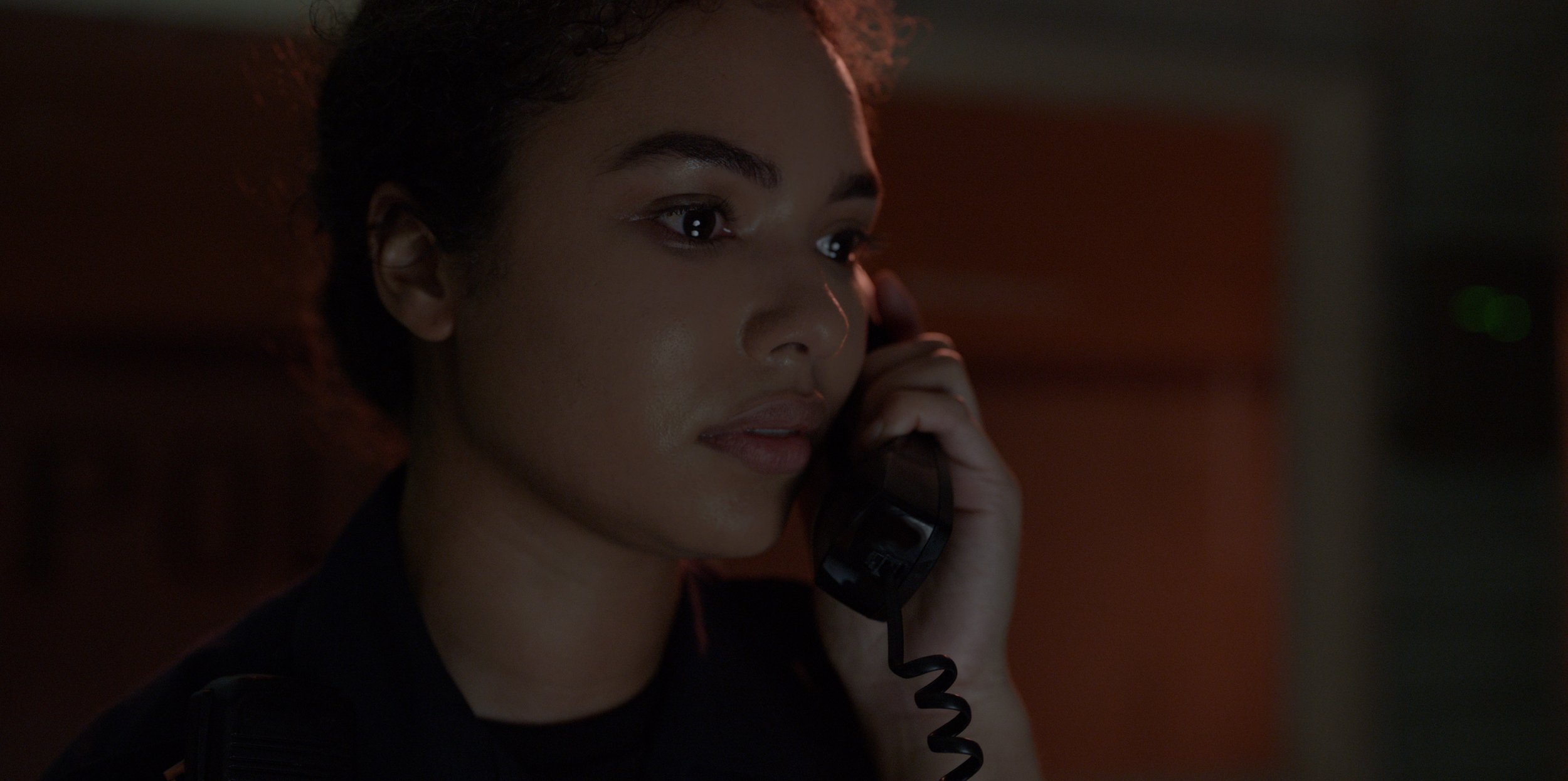[Review] 'Malum' More than Justifies its Existence as a Remake of the Not-Even-a-Decade-Old 'Last Shift'
Remakes aren’t new in the Horror genre. From the well-respected remakes of the 80s that repositioned 50s era horror films in a more sinister and cynical world to the glut of early 00s remakes that ranged from great to “let’s never talk about it again”, the genre has seen its fair share of reimaginings. What we don’t see a lot is directors remaking their own films. Sure, we have Michael Haneke’s Funny Games which he remade as an English-speaking remake. But a director revisiting their own work in the same language (a la Hitchcock’s The Man Who Knew Too Much) isn’t as common.
Which makes Anthony DiBlasi’s Malum an intriguing remake. Co-written by Anthony DiBlasi and Scott Poiley, Malum is a remake of the writing team and director’s 2014 Last Shift. Some might question the need for a director to remake his own movie not even a decade after the original, but Malum does update the story with some intriguing small details that make the story feel bigger than it actually is. With some subtle references to police corruption and a more well-rounded approach to its design, Malum fulfills the promise of the original.
Malum opens with some cam footage, found footage style, filled with demonic symbols and bound and hooded prisoners. After this ominous and cult-filled segment, the story moves to the aftermath of a police raid on the cultists’ compound to save some young women from being sacrificed. Will Loren (Eric Olson) managed to save some of the women, but he still sees himself as a failure because he didn’t get there in time to save all of them. While the rest of the world sees him as a hero, Will takes a shotgun and turns it on his fellow police officers and then says that he’s “safe in the arms of my master” and turns the gun on himself.
A year later and the police station is being decommissioned and transitioned to another location. A skeleton crew operates the rundown building and one particular rookie decides to spend her first day on the job as the titular last graveyard shift officer on duty for the decrepit station. The rookie is Will’s daughter Jessica (Jessica Sula) and she wants this final shift to try to understand why her father murdered his fellow officers and himself.
Immediately, she’s on edge when she meets the only other officer in the building, Cohen (Britt George) who warns her to stay away from holding while simultaneously spewing menace. “Your father was a murderer,” he tells her angrily. “He killed my friends. So why are you here?” That tension slowly increases over the runtime of the film, as Malum keeps the action firmly on Jessica while adding in an assortment of weird characters, ominous bumps in the night and insistent phone calls. Once in awhile, DiBlasi gives us some insight into what’s happening around town with shots of fires and smoke on the skyline and shots of the empty streets mixed with shots of increasingly violent cult activity. Something is going down and it ties into Jessica’s father and the creepy police station.
While Malum isn’t about police corruption or the Black Lives Matter movement, it wasn’t created in a vacuum. A lot has changed since Last Shift came out at the beginning of the movement and increased public understanding of police brutality. This version of Jessica has her black mom Diane (Candice Coke) and a white father, who was a cop “hero” until he wasn’t. Jessica’s brief interactions with her fellow police officers is filled with underlying tension, including sexism and a “boys will be boys” mentality that stretches from the locker room and into the rest of the world. The few people she interacts with don’t trust the police, including a sex worker who wryly remarks that Jessica isn’t “seasoned” because no police officer would show her the kindness that Jessica did.
Meanwhile, the language subtly added to the dialogue adds a light touch of social commentary that adds a bit more context to the horror. In Malum, the cops might see themselves as the hero (until they’re not, as a character references in the film) but the screenplay quietly suggests that the cops are its own form of cult. In its most obvious exploration of that concept, whenever Jessica gets scared or frustrated she clings to the police officer’s code, mentally reciting passages from her training as if they were psalms.
Malum is a relatively quiet film for most of the runtime, tending to slowly build tension through giving Jessica a variety of tasks throughout the station and drip-feeding weird sounds, vaguely caught manifestations and quick jumpscares. By the time it enters the third act, DiBlasi and RussellFX (Bliss, The Ritual, Hellraiser (2022)) really let the gore fly with some truly cringe-worthy kills, including one by hanging that had me gasping, “oh my” as fingers popped off.
The end result is a remake that seems like a slight refinement, but is a more fully realized story promised by Last Shift. There’s something to be said about the more indie, low budget charm of the original, but Malum manages to up the stakes and create a feel-bad movie where there aren’t any heroes, just various shades of gray.


![[Review] 'Malum' More than Justifies its Existence as a Remake of the Not-Even-a-Decade-Old 'Last Shift'](https://images.squarespace-cdn.com/content/v1/5b39608d75f9eef54c62c3f0/1680791425639-BQJY29CEHM3U99V9CGU5/1VZwtp_U.jpeg)



![[Exclusive Interview] Slasher TV Creatives Talk Cronenberg, Inventive Kills and "Flesh and Blood" and "Ripper"](https://images.squarespace-cdn.com/content/v1/5b39608d75f9eef54c62c3f0/1680784891722-B4CQD705SXJX9HJ8M63X/SlasherRipper_PressArt_2000x3000.jpg)
![[Wreck Review with Joe Lipsett] Wreck Ends the Season on a Phenomenal note with "Water Off a Duck's Back"](https://images.squarespace-cdn.com/content/v1/5b39608d75f9eef54c62c3f0/1680652570933-CQ1BHB38ELI2F3Z1HX6N/wreck_0106.jpg)
![[Review] Luz](https://images.squarespace-cdn.com/content/v1/5b39608d75f9eef54c62c3f0/1563239938152-AQYC9IHBEQDHHBG8W54D/MV5BNTMyZWM0ODktNDFkYi00ZDU5LTkxNDEtODJjNDZlYTFhNTkzXkEyXkFqcGdeQXVyNTU4NDM4MDU%40._V1_.jpg)
![[Review] The Curse of Buckout Road Disappoints](https://images.squarespace-cdn.com/content/v1/5b39608d75f9eef54c62c3f0/1569973445989-XK3427TX41O9AYVC9WJU/DRlpGhXQ.jpeg)
![[Review] Ivan Kavanagh's Son Is A Predictably Familiar But Gory Delight](https://images.squarespace-cdn.com/content/v1/5b39608d75f9eef54c62c3f0/1614977109198-FWT5S5V2JIOLMED78TIY/wDBEzuII.jpeg)